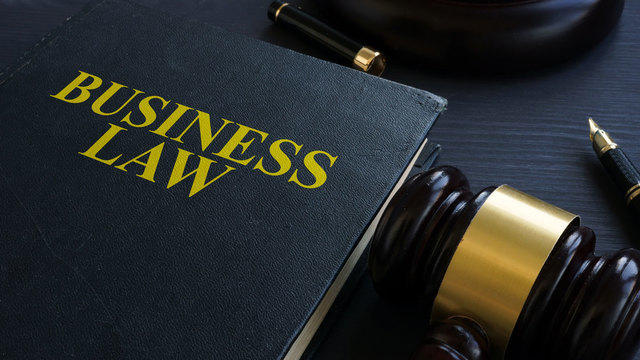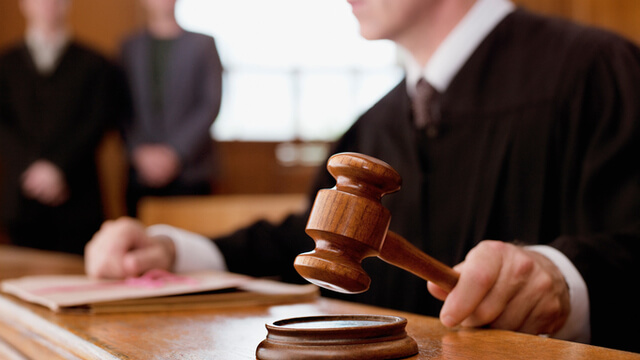You have the right to remain silent. Anything you say can and will be used against you in a court of law. You have the right to an attorney. If you cannot afford an attorney, one will be provided for you. Do you understand the rights I have just read to you?
You've heard these rights over and over again in movies and television shows, but have you ever really thought of their importance? In the wake of the tragic events that occurred in Boston and your recent review of Crimes for bar exam prep, we thought this would be a perfect time to review Miranda rights and the exception that was invoked after Boston Marathon bombing suspect #2 was taken into custody.
You have the right against self-incrimination under the Fifth Amendment. The Miranda warnings must be given to anyone in police custody before police interrogation. As seen above, these Miranda warnings inform the defendant of his or her right to remain silent and right to counsel. But, remember that the Miranda rights must only be read to those in a custodial interrogation. What should your next question be? What is considered 'in custody'? Well, a person is 'in custody' if he or she does not believe that they are free to terminate the interrogation. For any answers given by the defendant during a custodial interrogation to be admitted at trial, the police must have read the Miranda rights and obtained a valid waiver (i.e. knowingly, voluntarily, and intelligently) of these rights.
After Boston Marathon bombing suspect #2 was taking into custody, a Justice Department official stated that he would not be read his Miranda rights because the government was invoking the public safety exception.
The public safety exception to the Miranda rights allows the police to conduct an interrogation without reading a suspect their Miranda warnings if there is a reasonable concern for public safety. But, this exception only applies to voluntary statements made by the suspect; as opposed to coerced statements, which are not protected by this exception. Not only does the exception permit police to interrogate without reading the Miranda warnings, but also allows the government to introduce the statements as evidence against the suspect in court.
This exception comes from the 1984 Supreme Court case New York v. Quarles where the police apprehended a rape suspect in a crowded grocery store. During this arrest, the police found an empty gun-holster and before reading the suspect his Miranda rights asked him where the gun was. The suspect nodded in the direction of the gun and said, "The gun is over there." Only after retrieving the gun did the police read the suspect his Miranda rights. The Supreme Court held that the rule of Miranda is not absolute and can be a bit more elastic where there is a concern for public safety. Under this exception, to be admissible in the government's direct case at a trial, the questioning must not be "actually compelled by police conduct which overcame his will to resist, and must be focused and limited, involving a situation -in which police officers ask questions reasonably prompted by a concern for the public safety."
Alright, so let's get a little perspective on how all of this related to Dzhokhar Tsarnaev, Boston bombing suspect #2. The government invoked the public safety exception so Tsarnaev was not read his Miranda rights after he was taken into custody and before the FBI initially questioned him.
This decision sparked debate among advocates, lawyers and legislators as to the appropriateness of this exception in Tsarnaev's case. The reason for this debate was not whether the Boston bombing and its aftermath were sufficient to invoke the public safety exception. After all, these suspects were alleged not only to have planted bombs at the Boston Marathon but they also engaged in a shoot out with police during which other improvised explosive devices were used. Given these facts, the police could easily invoke the public safety exception to ask Tsarnaev whether or not there were any other undetonated improvised explosive devices that had not been accounted for. Therefore, if the police needed to question Tsarnaev as to the location of other bombs, the public safety exception would definitely apply.
However, since the public safety exception is rooted in the 'need for answers to questions in a situation posing a threat to public safety,' it is only temporary. Once it becomes clear that no such threat exists, Tsarnaev must be read his Miranda rights. The issue is that while the government invoked the public safety exception, other statements made by law enforcement officials seemed to contradict the government's claim that there was an imminent threat to public safety.
This is not surprising, given that the FBI has aggressively applied this public safety exception in terrorism cases. A 2011 FBI memo says agents may delay reading Miranda rights to a suspect in 'exceptional cases' when the FBI "conclude[s] that continued unwarned interrogation is necessary to collect valuable and timely intelligence not related to any immediate threat." This memo is controversial because it extends the public safety exception beyond truly imminent threats to encompass more distant future threats. The FBI's interpretation of the public safety has yet to be reviewed by the Supreme Court, or any other court for that matter.
One last thing to keep in mind is that law enforcement would only have to read Tsarnaev his Miranda rights if they intend to use his responses against him at trial. If Tsarnaev's un-Mirandized statements are not used against him at trial, there is nothing wrong with the police interrogating him without first reading him his Miranda rights.
Even more concerning, however, was the recommendation of Republican Senators John McCain and Lindsey Graham that Tsarnaev be held as an enemy combatant and tried in a military tribunal. While there has been serious debate regarding what constitutional protections would apply to enemy combatants apprehended abroad, there is no question that a crime committed in the United States must be investigated and prosecuted in accordance with our Constitution. In fact, Alan Dershowitz, a prominent defense attorney and Harvard Law professor, scoffed at the senators' suggestion:
"Impossible. There's no way an American citizen committing a domestic crime in the city of Boston could be tried as an enemy combatant. It could never happen. And that shows absolute ignorance of the law."
Numerous domestic terrorists, including Timothy McVeigh, have been tried and convicted without abandoning due process. These Senators tried to argue that Tsarnaev should be treated as an enemy combatant because he is Muslim and Chechen. A suspect's race, ethnicity or religion are completely irrelevant. This is the same type of logic that resulted in the internment of Japanese-Americans during World War II.
The Constitution applies to all of us. The fact that Tsarnaev is Muslim and charged with extremely heinous crimes does not change this fact.
Hope that was helpful! Now get back to your bar exam review.
Happy Studying!
"He who sacrifices freedom for security deserves neither." - Benjamin Franklin











